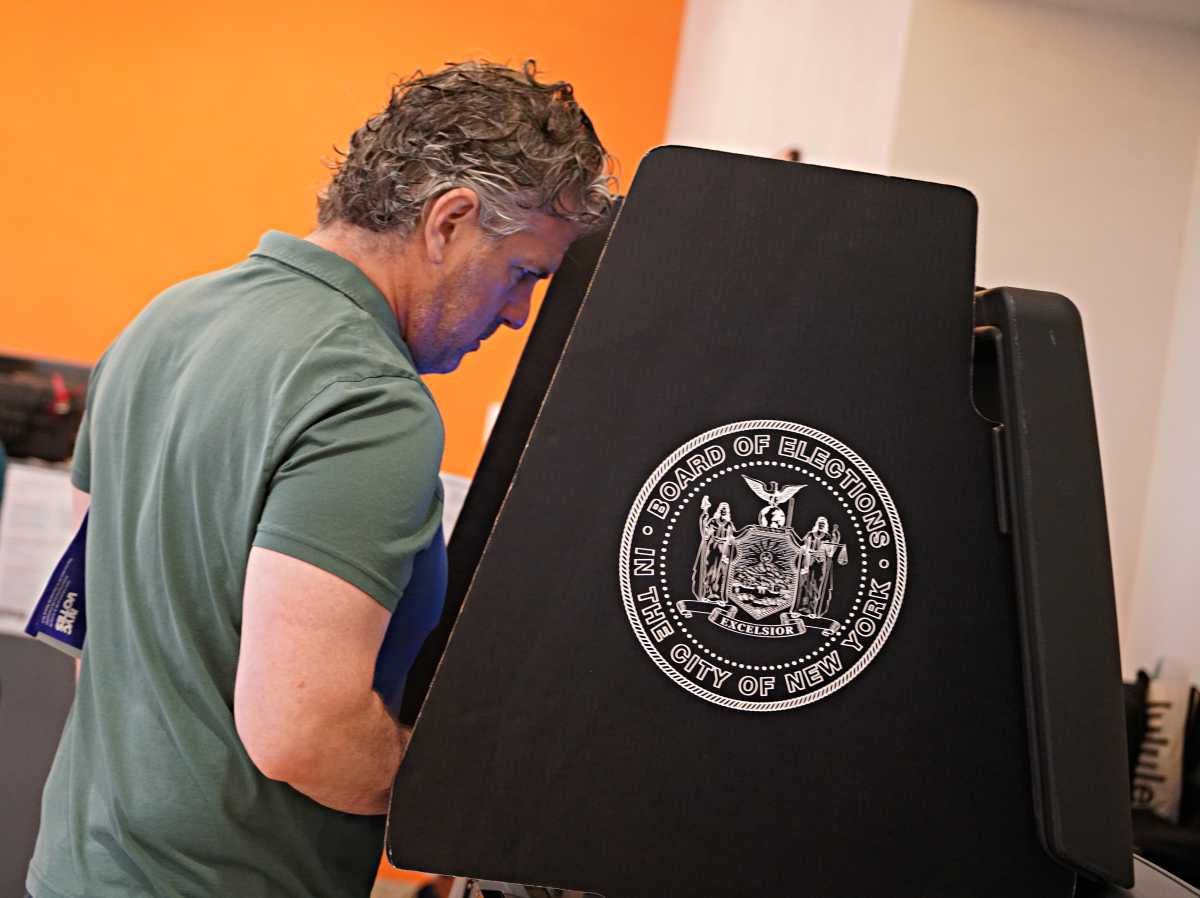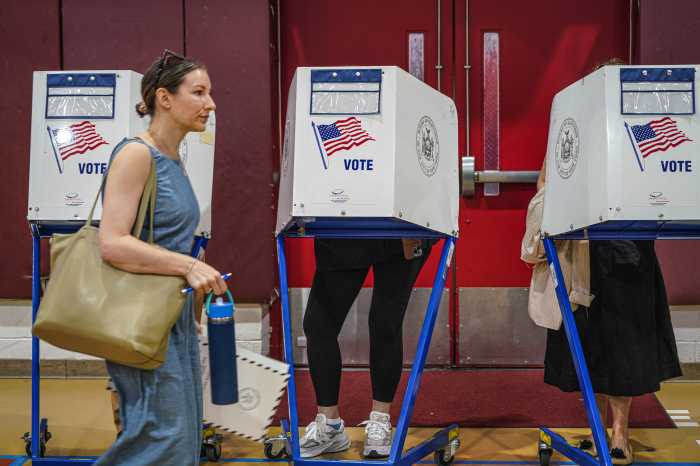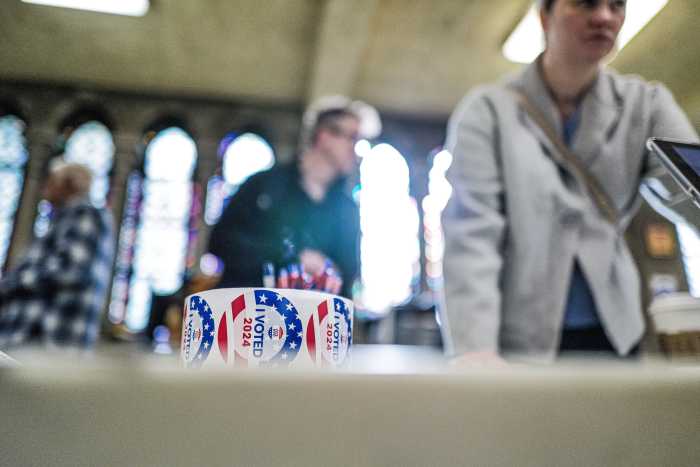New York City voters will likely decide on five ballot measures in November that include fast-tracking affordable housing and holding city elections the same year as federal elections.
One of the ballot measures would rewrite longstanding development practices to remove barriers to affordable housing and infrastructure construction. Another would shift city elections to even-numbered years, in line with federal elections, which see significantly higher turnout.
The proposals come from a report released Tuesday by the Charter Revision Commission, a temporary 13-member body empaneled by Mayor Eric Adams in December to review the City Charter.
The changes to housing and land use policy particularly target City Council members’ use of an unofficial veto, known as “member deference,” to control developments in their districts, which the report found often hinders housing construction.
The Tuesday report is technically “interim” and the measures still must pass a final vote of the commission on July 21 before being submitted to the city clerk. However, members of the board were confident they had reached a consensus and the report file is mislabeled “final report,” potentially indicating their certainty.
The first ballot measure would fast-track affordable housing by expediting public review for communities with limited affordable housing, while the second measure would simplify the review process for modest infrastructure projects, known as ULURP.
The commission also proposed creating a new “appeals board” to overrule Council decisions on development projects with a majority vote, consisting of the mayor, the speaker of the City Council and the appropriate borough president — replacing the mayor’s unilateral veto power.
Rachel Fee, executive director of the New York Housing Conference, praised the recommendations in a statement after the report was released.
“The four land-use proposals put forward by the Commission — including fast-tracking public processes for affordable housing and streamlining the ULURP process — will create additional opportunities for residents of all income levels across our city at a time when more homes are urgently needed,” Fee wrote. “By expediting the creation of new housing across the five boroughs, we will help bring the promise of the historic City of Yes plan we adopted last year to life.”
“We hope New Yorkers will be given the chance to vote on these recommendations in November to help make a more affordable and livable New York City a reality,” Fee added.
According to the report, the land-use measures tackling member deference are particularly important to address growing affordability since the last time a member’s unofficial veto was overruled was in 2009.
Affordability and development has been a centerpoint of the mayoral race, with Democratic nominee Zohran Mamdani and Adams, who is seeking re-election as an independent, making housing a core issue in their campaigns.
New York City’s housing vacancy rate is the lowest it has been in 50 years, indicating a major citywide housing shortage. Adams specifically tasked the commission with addressing that housing crisis.
The election year ballot measure — which the commission added after input from public hearings — aims to increase turnout and decrease costs by matching city elections with federal elections.
“Shitting elections to even-numbered years is perhaps the simplest and most effective way for New York City to significantly increase voter turnout,” the report reads. “A similar change has been implemented successfully in many cities across the country, which have seen immediate improvements in voter participation — including electorates that are more demographically representative of the public at large.”
While the other four ballot measures would only have to pass city voters, a change to the election year would additionally require amending the state constitution, which involves passing two successive legislative sessions.
The commission also is still “considering” a ballot measure that would institute open primaries in New York City, where candidates from all parties compete in a single primary open to every registered voter, and the top vote-getters advance to the general election. Over 1 million voters are not registered with a political party and thus unable to vote in a primary election under the current system, according to the report.
City Council members who support member deference are likely to actively oppose the ballot measures, making their November passage uncertain. Those advocates argue that local control is important for development, but critics contend that it amounts to a personal “fiefdom” for council members.
City Council Speaker Adrienne Adams, who ran an unsuccessful campaign for mayor, has also pushed back against the notion that the City Council is responsible for the lack of affordable housing. She opposed the mayor’s charter commission because she argued it was only created to stop a Council-led commission from November, which could not submit ballot measures if the mayor’s commission did, according to state law.
The Charter Review Commission will hold a public hearing on July 7 before the final public meeting on July 21, where the members will vote on the language to appear on November ballots.






































